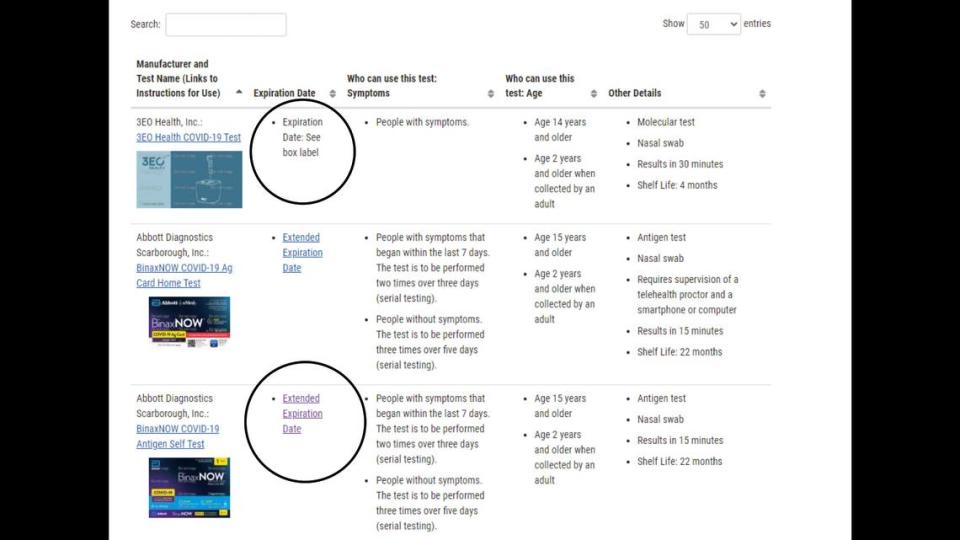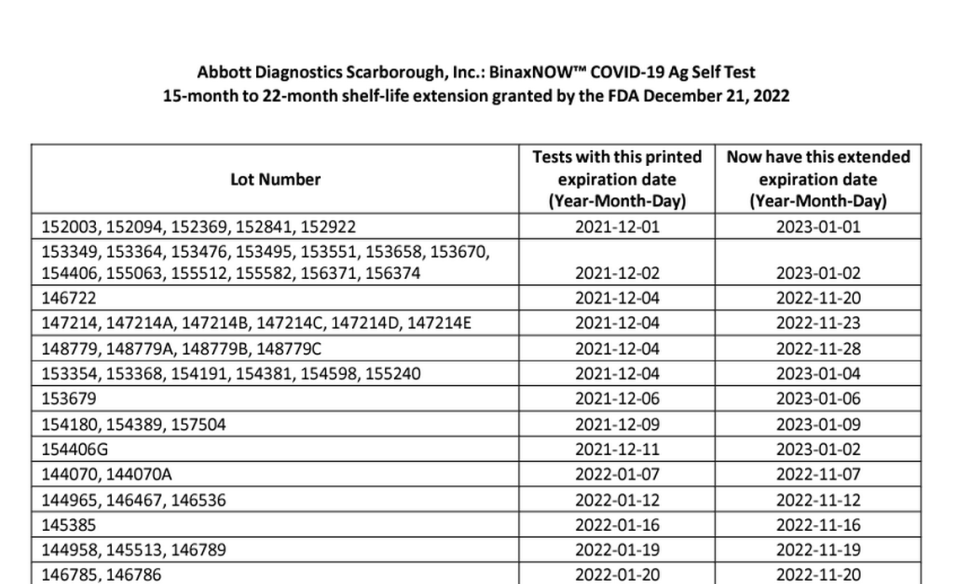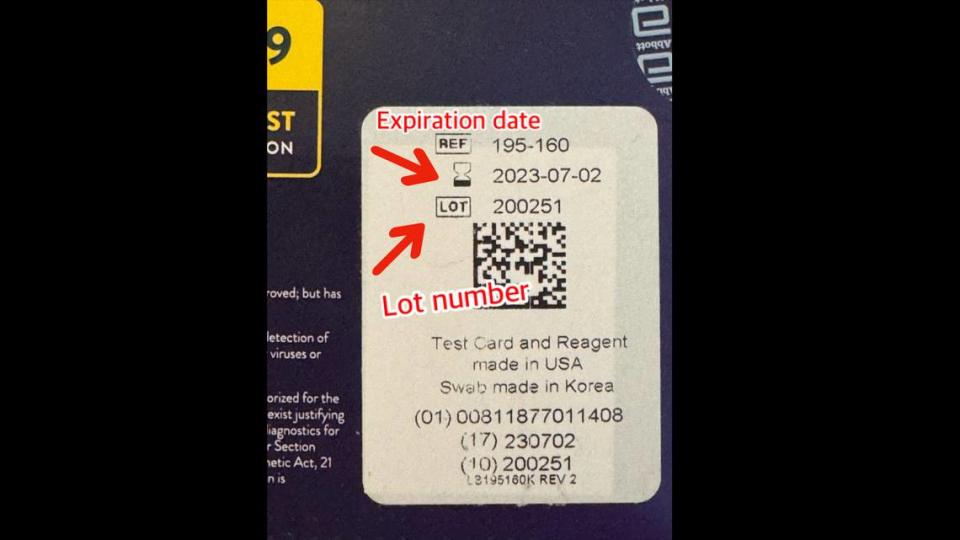Some at-home COVID tests have expiration dates changed by the FDA. How to check yours
Is your at-home COVID test expired?
Don’t throw it out. First, check to see if the expiration date got an extension by the U.S. Food and Drug Administration. If it did, that means the test can still produce accurate results.
Here’s how to check:
Does my COVID at-home test still work? How to check
You’ll need to visit the FDA’s website and search for its “Extended Expiration Date” table.
Once you’re on the page with the table, go to the search function and type the manufacturer and test name shown on the box label of your test. Each result also has a photo of the test’s label, which should make it easier to identify your test.
Check the “Expiration Date” column:
▪ If it says “Expiration Date: See box label” that means the test is expired and you should not use it.
▪ If you see a hyperlinked “Extended Expiration Date” for your test, that means the FDA gave it an extension. Click the hyperlinked text. This will take you to a document that lists lot numbers, original expiration dates, and new expiration dates.

▪ Compare your test’s lot number and original expiration date to the list. If you see a match, look at the last column of the document to see the test’s new expiration date. If you don’t find a match, don’t use the test, the FDA says.

Tip: The lot number and expiration date of your test will usually be near each other on the box. Look for the word “LOT.” This may be a combination of letters and numbers. That’s your lot number. For the expiration date, look for the words “Expiration” or “Use by.” Some boxes might use an hourglass drawing instead to identify the expiration date.

If your COVID test is expired, should you still use it?
The FDA doesn’t recommend using expired COVID at-home tests that do not have an expiration date extension.
“COVID-19 tests and the parts they are made of may degrade, or break down, over time. Because of this, expired test kits could give inaccurate or invalid test results,” the FDA said.
READ NEXT: More ER patients in Florida test positive for COVID. The surge is different this time
Why did some tests get extensions and others didn’t?
At-home COVID test expiration dates show how long the tests are expected to “perform as accurately as when manufactured,” according to the FDA. These expiration dates were “measured from the date the test was manufactured.”
The FDA said it uses data from initial study results to create an expiration date, which is usually about four to six months from the day the test was manufactured. Once the test manufacturers have more “stability testing results,” usually within 12 or 18 months, they can ask the FDA to review the data and possibly give an OK to a longer shelf-life.
MORE: Do you have COVID? Here’s how long the CDC recommends you stay home

